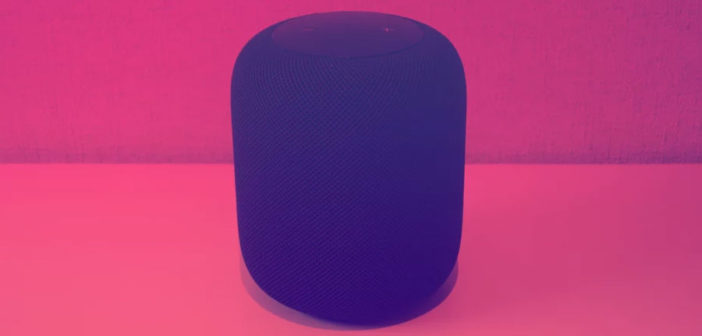The company may have overplayed the importance of audio quality at the expense of digital assistant smarts.
If reports are accurate that Apple’s HomePod smart speaker is flopping, it’s likely because Apple nailed the speaker part but not the “smart” part.
DigiTimes reports the company has cut production orders from half a million per month to just 200,000.
Apple was very late to the smart speaker party. Amazon’s Echo showed up in November 2014, and the HomePod launched in February 2018. But that’s not the main problem. Apple wasn’t the first to the smartphone, tablet, or MP3 categories either–and it dominated with clearly better products. It’s less about when and more about why. Apple entered those markets knowing it would have to, and could, bring something game-changing.
That term that isn’t easily applied to the HomePod. The speaker is nicely designed (of course) but from a functional standpoint it’s no reinvention of the smart speaker. Apple might argue that the audio technology in the device represents a reinvention of the smart speaker, adding that the research shows listening to music is the number one use of the devices.
If Apple miscalculated on the “market fit” of the $349 HomePod, it may be because it overestimated the importance of the device’s audio, while undervaluing–and thus under-developing–the digital assistance functionality.
Apple did add some heavyweight audio tech to the HomePod to measure and customize the sound to the room where it’s located. That’s where it nailed the “speaker” part of the device, but the “smart” part is a different story. The speaker’s digital assistant functionality (Siri) lags far behind that of its peers Google and Amazon. This is where Apple’s late entry into the market really hurt it, because Amazon Echo and Google Home had already set expectations in people’s minds for the various things a smart speaker is supposed to do.
And that’s where Apple didn’t check all the boxes. The HomePod integrates directly with Siri, Apple Music, iTunes, HomeKit (to control connected home devices), and iCloud. But something like the Echo’s vast number of third-party-developed skills is just not there. Nor can HomePod make phone calls (without an iPhone). Nor can it distinguish between different users (Apple is working on that). Nor does it allow Android phone users to play back their music via a standard Bluetooth connection.
Meanwhile, Google’s Home and Amazon’s Echo devices play more crucial roles in those ecosystems. Part of the reason for Google’s interest in smart speakers is a desire to put the Assistant they contain in as many living rooms, kitchens, and bathrooms as possible. Amazon wants consumers to be able to make voice orders to its marketplace wherever they are in the house. Because those things are so important, Google and Amazon are willing to make their smart speakers relatively less expensive, in effect subsidizing their use in the home.
Maybe Apple sees HomePod as a vital front end for Apple Music (which is already killing it with 40 million paid subscribers). And using Apple Music on the HomePod is a deluxe experience. But the HomePod’s $349 price tag doesn’t look very subsidized compared to the Google Home’s $129 price, or the second generation Amazon Echo’s $100 price. Both Google’s Home Mini and Amazon’s Dot are $50.
I have a HomePod and I like it. It sounds far better than the Echo or the Home. I use it to control lights and switches and other connected home stuff–also a great experience. But I also keep a Google Home in the kitchen, because I’m pretty well hooked into the Google’s productivity services, and I find the Home more helpful than the HomePod for dialing up news, podcasts, and random web facts.
Even if the sales numbers are a disaster, Apple won’t give up on HomePod anytime soon. You’ll likely see Apple both expand the utility of the HomePod and reduce its price. I’ve no doubt the HomePod will soon support multiple user accounts. Apple has already said multi-room use and dual-HomePod stereo mode are coming soon. We’re likely to see a more interesting integration with Apple TV as well. There may also be something called a HomePod Mini, with a smaller form factor and a smaller price.
Given the timing and the competition, HomePod will never be the category killer the iPhone and iPad were. Maybe Apple is happy to offer a niche product. Maybe HomePod will serve as a reminder to Apple of one of its own core values–play to win or stay home.
–
This article first appeared in www.fastcompany.com
Seeking to build and grow your brand using the force of consumer insight, strategic foresight, creative disruption and technology prowess? Talk to us at +9714 3867728 or mail: info@groupisd.com or visit www.groupisd.com




